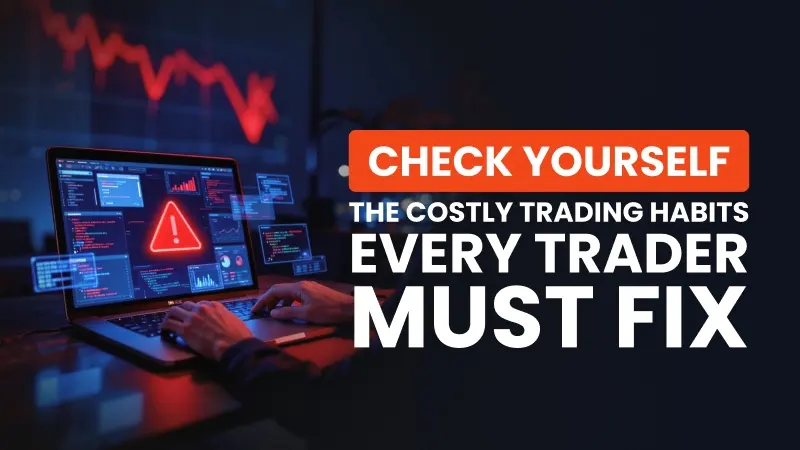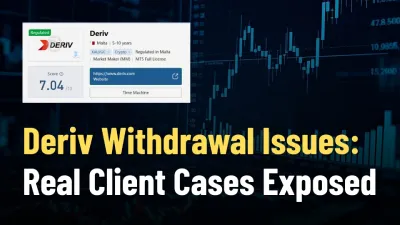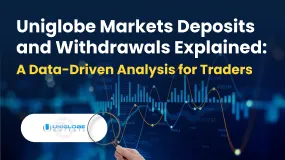简体中文
繁體中文
English
Pусский
日本語
ภาษาไทย
Tiếng Việt
Bahasa Indonesia
Español
हिन्दी
Filippiiniläinen
Français
Deutsch
Português
Türkçe
한국어
العربية
How Forex Trading Has Changed Due to COVID-19
Abstract:There are many aspects of life that the COVID-19 pandemic has impacted. Many people are now used to working from home and having a greater level of flexibility with how they work.

Among the major changes are the forex markets being particularly volatile due to all of the uncertainty. Here are a few other ways in which the pandemic had an impact on the world of forex trading:
Big Impact on Major Currencies
Most countries took different approaches to the pandemic. Some were very restrictive, while others tried to have minimal restrictions in place.
For countries that were very restrictive and had many COVID-19 cases, they often saw their currencies weakening. Those economies that managed to stay somewhat on track had a greater level of stability with their currencies. This was particularly the case in the first few months of the pandemic.
One of the big impacts saw GBP falling 15% versus the USD in the beginning half of 2020. This was the lowest level it had been in about three decades. In 2021, as the second wave of the virus spread, the USD began to come under more pressure following the initial stability.
Significant Fluctuations in Emerging Currencies
There was a huge amount of volatility with currencies in emerging markets. Many people retreated to holding USD and getting out of some of the more volatile currencies as a result of the volatility. For example, the South African rand saw a 32% drop compared to the USD in the beginning months of the pandemic. The Mexican peso had a 24% drop in a similar period of time.
Many analysts were forecasting that emerging economies might depreciate their currencies in an effort to protect their economies. This would help growth to continue rather than remaining stagnant. However, the downside of such an approach is the undervaluation of certain currencies in emerging markets. It can then have an effect on the purchasing power of the currency.
Shifts in Trading Styles
There werent just market changes on the back of the pandemic, styles of trading also altered. According to a recent survey of forex traders, there was a big increase in the trading volumes on single-dealer platforms, as well as an increase in the level of voice trading.
There was a shift in the psychology of many traders who realized how important it can be to create strong relationships with forex market dealers. This was particularly the case when there were dips in liquidity.
There was also a move towards trading smaller volumes, with traders starting to break up their bigger trades into smaller chunks. It is likely that these trends will remain in place even post-pandemic.
Conclusion
With ongoing uncertainty in the world due to the current conflicts, pandemic recovery, and rising inflation, it is likely that forex markets are going to remain volatile for some time. Businesses are now looking at how they will be able to adapt to changing tides.
As many unknowns still remain, it creates a lot of potential opportunities for traders. It allows you to improve your skillset and continually strive towards profitable trading. Remember, to trade with a regulated and secure broker like Forex4you. Working with a broker like this can open up the gateways to the markets and remove a lot of uncertainty about trading for a beginner.

Disclaimer:
The views in this article only represent the author's personal views, and do not constitute investment advice on this platform. This platform does not guarantee the accuracy, completeness and timeliness of the information in the article, and will not be liable for any loss caused by the use of or reliance on the information in the article.
Read more

Check Yourself: The Costly Trading Habits Every Trader Must Fix
Are the trading habits you barely notice the very ones quietly destroying your profits, and could a single overlooked mistake be costing you far more than you realise?

Scandinavian Capital Markets Exposed: Traders Cry Foul Play Over Trade Manipulation & Fund Scams
Does Scandinavian Capital Markets stipulate heavy margin requirements to keep you out of positions? Have you been deceived by their price manipulation tactic? Have you lost all your investments as the broker did not have risk management in place? Were you persuaded to bet on too risky and scam-ridden instruments by the broker officials? These are some burning issues traders face here. In this Scandinavian Capital Markets review guide, we have discussed these issues. Read on to explore them.

Deriv Withdrawal Issues: Real Client Cases Exposed
Deriv exposed via client cases of withdrawal issues, 13‑month refund delays, severe slippage, and disabled accounts despite multiple “regulated” licenses.

Uniglobe Markets Deposits and Withdrawals Explained: A Data-Driven Analysis for Traders
For any experienced trader, the integrity of a broker isn't just measured in pips and spreads; it's fundamentally defined by the reliability and transparency of its financial operations. The ability to deposit and, more importantly, withdraw capital seamlessly is the bedrock of trust between a trader and their brokerage. When this process is fraught with delays, ambiguity, or outright failure, it undermines the entire trading relationship. This in-depth analysis focuses on Uniglobe Markets, a broker that has been operational for 5-10 years and presents itself as a world-class trading partner. We will move beyond the marketing claims to scrutinize the realities of its funding mechanisms. By examining available data on Uniglobe Markets deposits and withdrawals, we aim to provide a clear, evidence-based picture for traders evaluating this broker for long-term engagement. Our investigation will be anchored primarily in verified records and user exposure reports to explain the Uniglobe Mar
WikiFX Broker
Latest News
Gratitude Beyond Borders: WikiFX Thank You This Thanksgiving
MH Markets Commission Fees and Spreads Analysis: A Data-Driven Breakdown for Traders
Alpha FX Allegations: Traders Claim Account Blocks, Withdrawal Denials and Security Breaches
How to Become a Profitable Forex Trader in Pakistan in 2025
CFTC Polymarket Approval Signals U.S. Relaunch 2025
Zipphy Exposed: No Valid Regulation, Risk Warning
KEY TO MARKETS Review: Are Traders Facing Withdrawal Delays, Deposit Issues & Trade Manipulation?
FCA Consumer Warning – FCA Warning List 2025
Australia’s Fraud-Intel Network Exposes $60M in Scams
Malaysia’s SkyLine Guide Top 25 Brokers Are Out!
Currency Calculator



